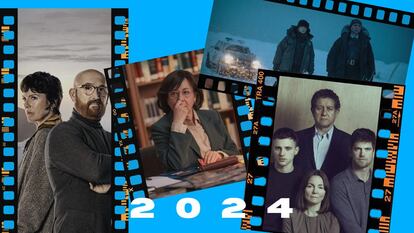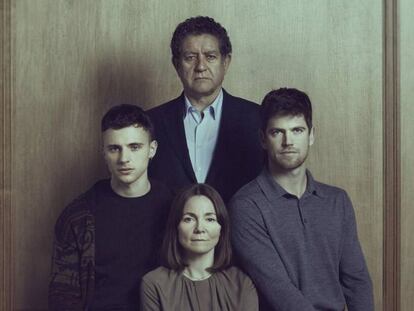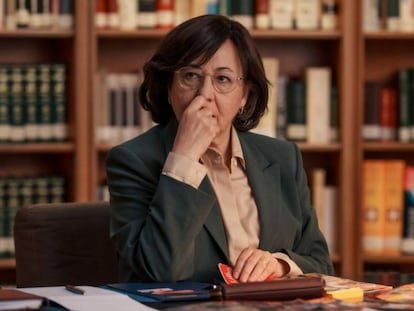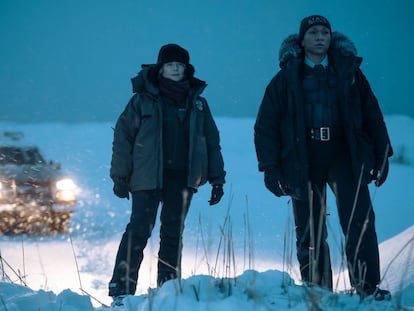Cable sobre la petici¨®n de Uruguay a EE UU para que desclasifique documentos sobre un asesinato
Abril de 2008. El presidente Tabar¨¦ V¨¢zquez env¨ªa una carta al presidente George Bush pidi¨¦ndole que desclasifique documentos relativos al asesinato de Cecilia Fontana Heber, en 1973
| ID: | 149574 |
| Date: | 2008-04-11 13:30:00 |
| Origin: | 08MONTEVIDEO197 |
| Source: | Embassy Montevideo |
| Classification: | CONFIDENTIAL |
| Dunno: | |
| Destination: | VZCZCXYZ0004 OO RUEHWEB DE RUEHMN #0197/01 1021330 ZNY CCCCC ZZH O 111330Z APR 08 FM AMEMBASSY MONTEVIDEO TO RUEHC/SECSTATE WASHDC IMMEDIATE 8099 INFO RUCNMER/MERCOSUR COLLECTIVE RHEHNSC/NSC WASHDC RUEAIIA/CIA WASHDC RHEFDIA/DIA WASHDC RHEHAAA/THE WHITE HOUSE WASHINGTON DC |
C O N F I D E N T I A L MONTEVIDEO 000197 SIPDIS SIPDIS DEPT FOR WHA/BSC (KBEAMER) NSC FOR GTOMASULO E.O. 12958: DECL: 04/08/2018 TAGS: PREL, PGOV, PHUM, PINR, UY SUBJECT: PRESIDENT ASKS POTUS TO RELEASE FILES ON POISON WINE CASE Classified By: Charge d'Affaires a.i., Robin H. Matthewman for reasons 1.4 (B) and (D) 1. (C) Summary and Action Request: The Foreign Minister delivered to the Ambassador on April 2 a letter from President Vazquez to President Bush requesting his assistance in the further declassification of USG documents related to the poisoning death of Cecilia Fontana de Heber in September 1978, during Uruguay's period of military rule. Post has forwarded the letter to WHA/BSC for delivery to the NSC. Embassy requests guidance for an interim response to the GOU. End Summary and Action Request. 2. (SBU) Begin unofficial translation. Montevideo, March 27, 2008 Mr. President: I have the pleasure to contact Your Excellency in order to make you aware that my Government finds itself devoted to the task of clarifying all of the episodes of human rights violations which occurred in my country during the period of the military regime, about which exists substantial information that originates from the declassification of Department of State files. My Government hopes to count on the cooperation of the United States of America in the clarification of all the cases of disappearances and human rights violations in that painful period of the history of Uruguay which took place between 1973 and 1985. In that regard, please allow me to request the cooperation of Mr. President in the adoption of the measures necessary so that the documents which would permit the clarification of the death due to poisoning of Mrs. Cecilia Fontana de Heber, a political crime which occurred on the 6th of September, 1978, as well as the documents related to our country during the aforementioned historical period, be unsealed in their totality. A portion of these documents were partially declassified at the beginning of this year by the Department of State. I avail myself of this opportunity to reiterate to Your Excellency the assurances of my most high and distinguished consideration and personal esteem. (Signed) Dr. Tabare Vazquez President of the Oriental Republic of Uruguay End unofficial translation. Background ---------- 3. (SBU) In August 1978, Senator Carlos Julio Pereyra (Chairman of the House of Representatives), Senator Mario Heber and Representative Luis Alberto Lacalle (later President of the Republic), each received a bottle of white wine wrapped in blue paper from an unknown source. The three democratically-elected congressmen belonged to the National (Blanco) party. As was discovered later, the three wine bottles contained a powerful poison. While none of the congressmen touched the wine, Mrs. Fontana de Heber (the wife of Senator Heber) drank some of it and subsequently died. The perpetrators of the crime were never identified. When the Frente Amplio party assumed power in 2005, it promised to account for all human rights abuses committed during the dictatorship period. Since then, the Blancos have complained that the FA has only pursued cases connected to its members and its sympathizers. 4. (C) A similar letter to POTUS and FOIA requests were made by a group of Uruguayan deputies last year regarding the poison wine case. The State Department declassified some documents related to the case. The CIA did not, citing concerns about the compromise of sources and methods. Many Uruguayans remain unsatisfied with the USG response and are convinced that the USG possesses useful information about the death of Mrs. Heber. Comment ------- 5. (C) The GOU is under political pressure to account for all the human rights abuses committed during the 'dirty war' period. We believe that, in this particular case, the Heber relatives understand that the USG does not have any information on the perpetrator of this thirty year old crime. However, in this incipient campaign season, other political actors are finding the repeated requests for USG information to be a convenient way to put political pressure on the Frente Amplio government, for whatever reason. This is probably the driving force behind President Vazquez letter to President Bush. 6. (C) Uruguay's far-leftist groups regularly resort to human rights as an anti-U.S. rallying cry. Even mainstream press coverage here tends to reinforce the assertion that leftists are the only "true" defenders of human rights. Meanwhile, declassified U.S. documents from the period around the Uruguayan dictatorship have been used to fuel the fire. For instance, Venezuela's Telesur continually broadcasts accusations that the U.S. sponsored "Plan Condor," while it flashes snippets of declassified documents as "proof." Embassy believes that it is in the U.S. interest to respond quickly, and if possible responsively, to Vazquez' letter as a way to counter some of these accusations. End Comment. Matthewman |
Traducci¨®n autom¨¢tica. Puede que el texto traducido no sea fiel al original
Tu suscripci¨®n se est¨¢ usando en otro dispositivo
?Quieres a?adir otro usuario a tu suscripci¨®n?
Si contin¨²as leyendo en este dispositivo, no se podr¨¢ leer en el otro.
FlechaTu suscripci¨®n se est¨¢ usando en otro dispositivo y solo puedes acceder a EL PA?S desde un dispositivo a la vez.
Si quieres compartir tu cuenta, cambia tu suscripci¨®n a la modalidad Premium, as¨ª podr¨¢s a?adir otro usuario. Cada uno acceder¨¢ con su propia cuenta de email, lo que os permitir¨¢ personalizar vuestra experiencia en EL PA?S.
En el caso de no saber qui¨¦n est¨¢ usando tu cuenta, te recomendamos cambiar tu contrase?a aqu¨ª.
Si decides continuar compartiendo tu cuenta, este mensaje se mostrar¨¢ en tu dispositivo y en el de la otra persona que est¨¢ usando tu cuenta de forma indefinida, afectando a tu experiencia de lectura. Puedes consultar aqu¨ª los t¨¦rminos y condiciones de la suscripci¨®n digital.
































































